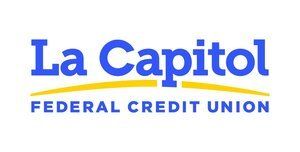Personal Finance and COVID-19
LOUISIANA REALTORS • April 3, 2020

How to Navigate the Financial Impact of COVID-19
Personal Finance and COVID-19
Coping With Financial Stress
The first thing you should do during this pandemic is calm your panic. Everyone is (understandably) a little on edge about money, but stress weakens the immune system. To maintain your physical, mental and emotional health, use the following tips to cope with financial stress.
Communicate
Social distancing, self-isolation, and quarantining can make you stir-crazy and lonely. Keep in touch with friends and family over the phone or through video calls. Being social even as you’re social distancing will ease your mind.
Talk about money
Find a trusted mental health professional to share the fears and worries you are experiencing. Though most offices aren’t taking in-person appointments during this pandemic, many offer virtual appointments.
Exercise
Research reported by the American Psychological Association found that regular exercise releases chemicals that help the brain cope better with stress, reduce anxiety, and lift depression. You may not be able to go to your usual gym, but going for a walk or run outside can lift your spirits.
Change what you can
If there are changes you can make to better your situation, implement them now. Lynne Hornyak, PhD, PCC, is a coaching consultant on the mental side of money. She recommends you look at things that are causing you financial stress in two ways: their level of importance, and whether they can be changed.
Items will fall into one of four categories:
1. Important, Changeable: Your budget is extremely important to your financial wellbeing, but it should also be flexible. Because of closures, you can reduce categories like restaurants and entertainment and increase your grocery and cleaning supply funds.
2. Important, Not Changeable: You can't control stock market volatility right now, so you may have to change your attitude, your expectations, or both. Don't panic about your investments. Leave them alone and focus on your current cash flow.
3. Not Important, Changeable: The fact that your spouse insists on paying the bills by hand when you’d rather do it online may drive you nuts, but it may not be important as long as they are being paid. If it’s not important, change your attitude. The real issue during a pandemic is how you will pay the bills, not the method you use to do it.
4. Not Important, Not Changeable: Maybe your parents always squabbled about money and that bothered you. But that is in the past and how they talked to you then is not really important, nor can you change it. Let it go and focus on supporting your friends and family through this health crisis. Be thankful When you’re in financial difficulty, you may feel the weight of the world is on your shoulders. But for most people, even when things aren’t going well, there is still a lot they can be thankful for. Oprah Winfrey says that keeping a “gratitude journal” has been helpful for her and many who have followed her advice feel the same. Take the time each day to write down three or four things you are thankful for, and really take a few moments to appreciate them. Get help If you’re in dire straits, talking to a certified credit counselor can help you budget and deal with your debt. There’s no shame in seeking help, especially during a worldwide pandemic.
Be thankful
When you’re in financial difficulty, you may feel the weight of the world is on your shoulders. But for most people, even when things aren’t going well, there is still a lot they can be thankful for. Oprah Winfrey says that keeping a “gratitude journal” has been helpful for her and many who have followed her advice feel the same. Take the time each day to write down three or four things you are thankful for, and really take a few moments to appreciate them.
Get help
If you’re in dire straits, talking to a certified credit counselor can help you budget and deal with your debt. There’s no shame in seeking help, especially during a worldwide pandemic.





